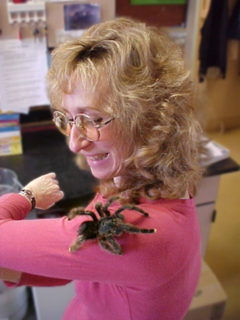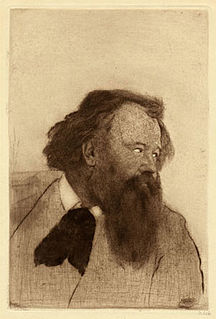A Quote by Robert Louis Stevenson
We consume the carcasses of creatures of like appetites, passions and organs with our own, and fill the slaughterhouses daily with screams of pain and fear.
Related Quotes
Mindful consumption is the object of this precept. We are what we consume. If we look deeply into the items that we consume every day, we will come to know our own nature very well. We have to eat, drink, consume, but if we do it unmindfully, we may destroy our bodies and our consciousness, showing ingratitude toward our ancestors, our parents, and future generations.
Human relationships with predators have always been thorny. Predators are the first creatures our kind purposely eradicates. Too often, people feel humans are and should be in control; we are enraged to discover this is not true. And when other creatures share our appetites and kill our livestock (often animals we were raising to kill, ourselves), we call them vandals and murderers...Predators are the most persecuted creatures on Earth.
Survivors have a difficult time expressing their feelings. They are more accustomed to minimizing their pain and hiding how they really feel, both from themselves and others. They often become frightened whenever they feel anything intensely, be it anger, pain, fear, or even love and joy. They fear their emotions will consume them or make them crazy.






































